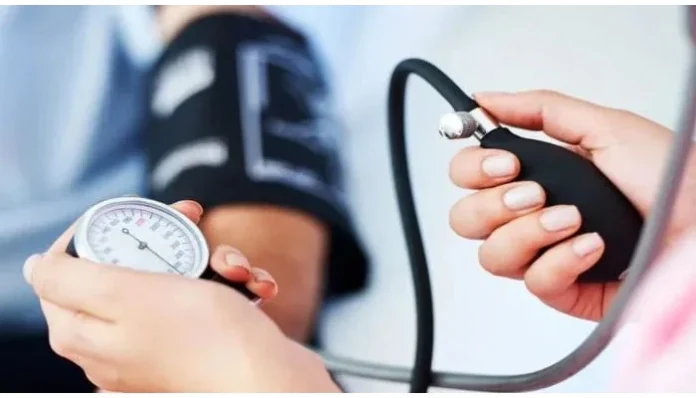When the pressure of the blood passing through the arteries is consistently too high, this is referred to as high blood pressure. High blood pressure is known as the “silent killer” because many people with it go undiagnosed.
What exactly is high blood pressure?
Blood flow is restricted when blood vessels narrow. The lower the flow and the higher the blood pressure, the narrower the arteries. This pressure can build up over time and lead to a variety of medical issues such as heart disease, heart attack, or stroke. Blood pressure is a very common problem that affects millions of people all over the world, including Pakistan. Blood vessels and organs, particularly the brain, heart, eyes, and kidneys, are harmed by high blood pressure. Early detection of high blood pressure aids in its management. Blood pressure can be managed with medication and a few lifestyle changes, but if untreated, it can lead to a variety of diseases, including heart attack and stroke.
What is the average blood pressure of a healthy person?
Blood pressure is measured in two ways. The first is systolic blood pressure, which expresses the upper pressure number. The pressure of blood reaching the various organs of the body as the heart beats is represented by systolic pressure. The second metric is diastolic blood pressure, which shows how many pauses and rests there are between human heartbeats. So, healthy people’s blood pressure should be 120/80.
If a person’s blood pressure is 130/80, it is safe to assume that hypertension has begun. Similarly, a blood pressure of 140/90 indicates that hypertension is progressing to the severe stage. These figures are critical because a 20-point increase in systolic pressure or a 10-point increase in diastolic pressure doubles a person’s risk of dying from a heart attack or stroke.
What are the signs and symptoms?
As previously stated, high blood pressure frequently causes no symptoms, earning it the moniker “silent killer.” The following, however, are the specific symptoms that appear as the severity of high blood pressure increases.
A severe headache has struck.
The nose is bleeding.
Tiredness or confusion
Vision issues.
Chest ache.
It’s difficult to breathe.
Heartbeat irregularity.
There is blood in the urine.
Pressure applied to the chest, neck, or ears.
Aside from that, many people experience symptoms that may be related to high blood pressure, but it is difficult to say for sure without a checkup.
to experience dizziness.
Excessive perspiration.
Sleeping problems.
Face is flushed.
Spots of blood in the eyes.
What causes blood pressure?
A variety of factors play a role in the development of high blood pressure.
Genes, age, race, obesity, alcohol consumption, excessive sitting time, diabetes, and high salt intake are among these risk factors. Certain diseases, such as kidney disease, snoring, heart problems, thyroid problems, and certain medications, all increase the risk of developing this disease.
How can you prevent high blood pressure?
Positive lifestyle changes, such as the ones listed below, can help control the factors that contribute to high blood pressure. Foods that promote heart health A heart-healthy diet is essential for lowering blood pressure and controlling high blood pressure if it occurs. A diet rich in olive oil, including fruits, vegetables, whole grains, chicken, fish, eggs, and nuts, promotes heart health.
Increase your physical activity level Exercise, in addition to weight loss, can naturally lower blood pressure while strengthening the cardiovascular system.
Maintain a healthy body weight Losing weight through a healthy diet and physical activity can help lower blood pressure if you are obese.
Manage your stress Yoga, meditation, deep breathing, massage, and muscle relaxation can help prevent high blood pressure, which is common in people who are stressed.
Smoking cessation High blood pressure is a common problem among smokers, and doctors advise them to quit. Tobacco contains chemicals that harm body tissues while hardening blood vessel walls.
Reduce sugar intake Sugary foods such as soda or others should be kept to a minimum as high sugar intake can also raise blood pressure levels.
Low salt intake Patients with high blood pressure or those at risk of heart disease are advised to reduce the amount of salt in their diet. Consuming too much salt can also increase the severity of high blood pressure or make you prone to it.
At what age should you make it a habit to check blood pressure?
The best way to avoid complications of high blood pressure is to diagnose the disease at an early stage. This is why after the age of 40 make it a habit to get your blood pressure checked at least once every year.


